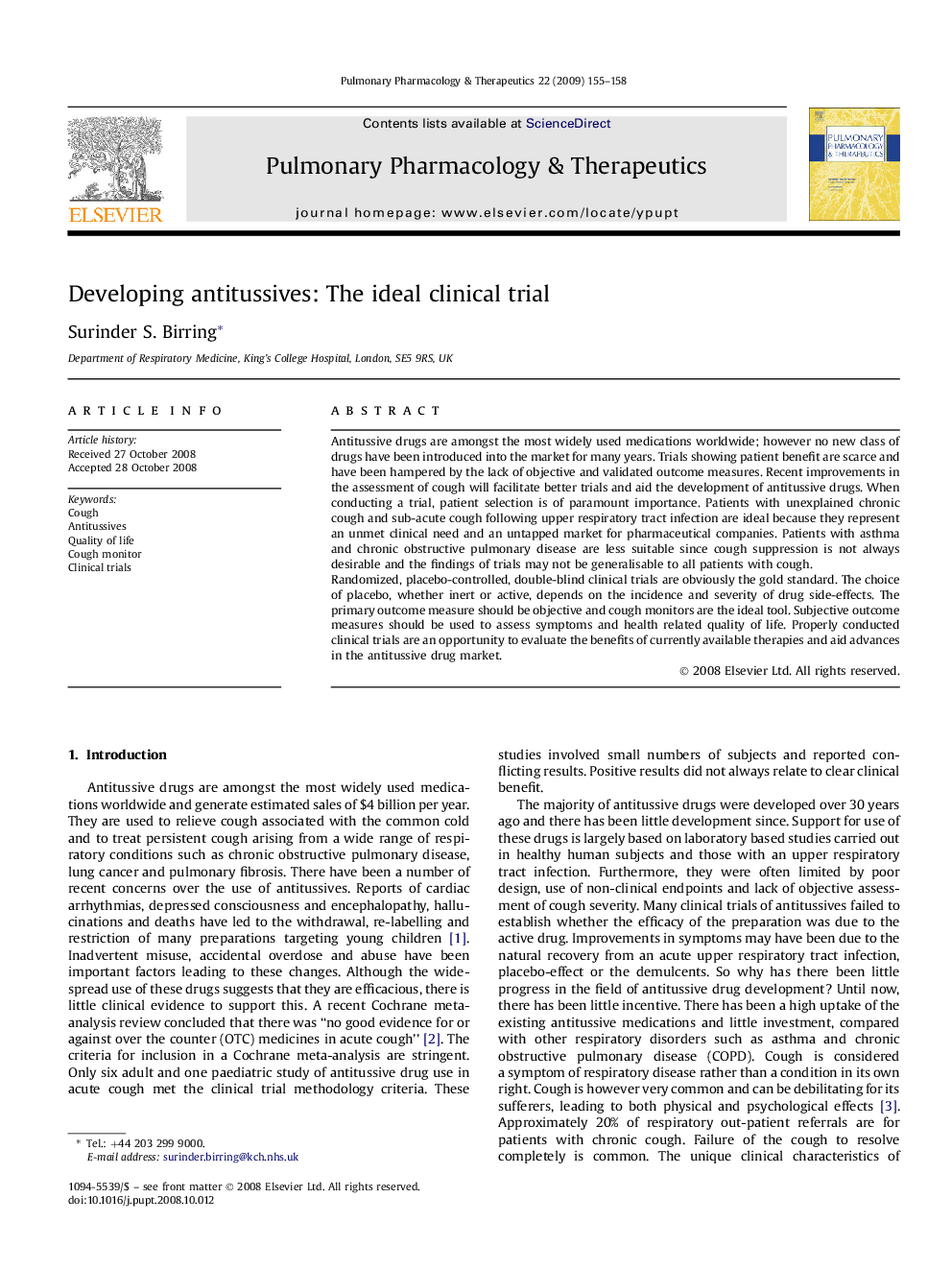| Article ID | Journal | Published Year | Pages | File Type |
|---|---|---|---|---|
| 2567321 | Pulmonary Pharmacology & Therapeutics | 2009 | 4 Pages |
Antitussive drugs are amongst the most widely used medications worldwide; however no new class of drugs have been introduced into the market for many years. Trials showing patient benefit are scarce and have been hampered by the lack of objective and validated outcome measures. Recent improvements in the assessment of cough will facilitate better trials and aid the development of antitussive drugs. When conducting a trial, patient selection is of paramount importance. Patients with unexplained chronic cough and sub-acute cough following upper respiratory tract infection are ideal because they represent an unmet clinical need and an untapped market for pharmaceutical companies. Patients with asthma and chronic obstructive pulmonary disease are less suitable since cough suppression is not always desirable and the findings of trials may not be generalisable to all patients with cough.Randomized, placebo-controlled, double-blind clinical trials are obviously the gold standard. The choice of placebo, whether inert or active, depends on the incidence and severity of drug side-effects. The primary outcome measure should be objective and cough monitors are the ideal tool. Subjective outcome measures should be used to assess symptoms and health related quality of life. Properly conducted clinical trials are an opportunity to evaluate the benefits of currently available therapies and aid advances in the antitussive drug market.
